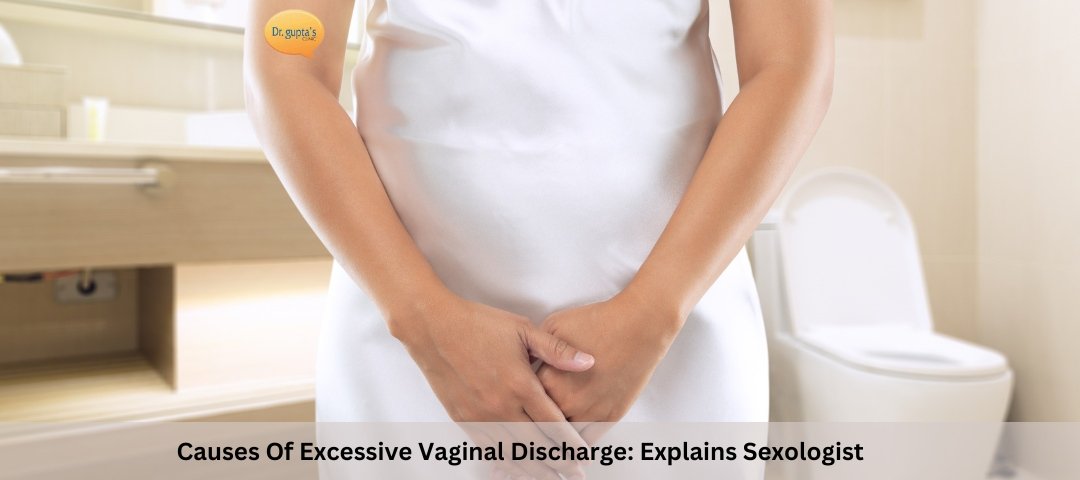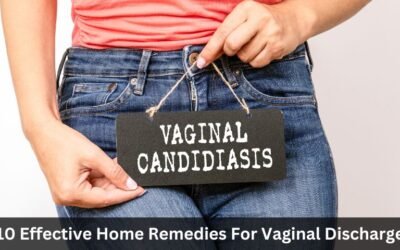Vaginal discharge is normal in women, and the fluid can keep the vagina clean and infection free, says our expert sexologist doctors. However, excessive vaginal discharge can be a symptom of an underlying condition. Excessive vaginal discharge is often accompanied by a change in colour, odour, and even consistency.
Causes Of Excessive Vaginal Discharge: Explain Sexologist
There are some reasons why you might experience excess vaginal discharge. But, first, let’s discuss some of the causes of excessive vaginal discharge.
- Bacterial vaginosis: It is a common bacterial infection and increases vaginal discharge along with a strong, foul, and fishy odour. The shot may also look grey, thin, and watery.
- Trichomoniasis: is another type of parasitic infection usually spread by sexual contact. It can also be contracted by sharing towels and clothes. If you suffer from trichomoniasis, you may notice a yellow or frothy discharge with an unpleasant smell.
- Sexually transmitted diseases: Sexually transmitted diseases (STDs) like gonorrhoea and Chlamydia can produce unusual vaginal discharge due to cervix infection.
- Pelvic inflammatory disease: Pelvic inflammatory disease occurs when bacteria spread in the vagina and other reproductive organs. Pain in the stomach after sex and heavy foul-smelling discharge is some of the signs indicating you are suffering from pelvic inflammatory diseases.
Well-known female sexual problems doctors said some symptoms indicate that your vaginal discharge is abnormal.
- Bad smell in your vaginal discharge
- Itchiness
- Burning in the vaginal area during urination
- More discharge than usual.
- Redness near the vagina and vulva
- Pain after sexual intercourse
- A constant need to urinate
Vaginal discharge is usually not an issue of concern. But if you have these unusual symptoms along with your vaginal discharge, you must seek treatment.
Treatment For Excessive Vaginal Discharge: Recommends Sexologist
When you visit a sexologist doctor to treat excessive vaginal discharge, your doctor will conduct some tests, including your pelvic examination, to detect an infection. He will also ask you detailed questions about your symptoms, menstrual cycle, and lifestyle.
If required, your sexologist will even ask you to give a sample of the discharge for further testing. In some patients, doctors conduct a cervical biopsy to check for cervical cancer or human papillomavirus.
Once the cause of the vaginal discharge is known, the sexologist will give you antibiotics or probiotic supplements for infections. Herbal sexual medicines also work wonders when diagnosing excessive vaginal discharge.
You can also take measures to prevent infection and reduce the flow of your vaginal discharge:
- Gently wash your vagina and avoid scented products, which may increase irritation.
- Wear cotton underwear to prevent discomfort and infection
- Always use a condom during sexual activity.
Conclusion
All women experience vaginal discharge. But checking your amount of vaginal discharge will help you notice the changes to start your diagnosis early and prevent long-term complications.
In conclusion, being aware of the normal patterns of vaginal discharge and regularly checking for any changes can help women detect potential health issues early and prevent long-term complications. If you notice any unusual changes in your vaginal discharge, it’s important to seek medical advice from a qualified sexual healthcare provider for proper evaluation and appropriate treatment.
For more information, please visit the website.
Website: https://www.drguptas.com/
You can also contact us through mail on: drguptasclinic@gmail.com
Or can also call us on: +91 9831834215
Related Blogs
How To Stop Masturbation In Men: Effective Ways To Overcome Masturbation Addiction
Are you in the habit of masturbating a lot? If yes, then you are on the right page! Masturbation is a natural and healthy aspect of human sexuality, contributing to sexual pleasure and overall sexual well-being. However, when it becomes an uncontrollable masturbation...
10 Effective Home Remedies For Vaginal Discharge
Many women have white discharge, also known as leucorrhoea, which is an issue that usually affects young girls of school age. This discharge problem occurs at a certain time period of the menstrual cycle. Girls and women shouldn't worry because the amount of white...
PCOD Diet: Foods To Eat And Avoid
Many immature or partly developed eggs are released by the ovaries as a result of polycystic ovarian disease (PCOD), which leads to cyst formation. Reduced symptom severity is a primary goal of PCOD diet and therapy. Indications of PCOD include painful or irregular...




